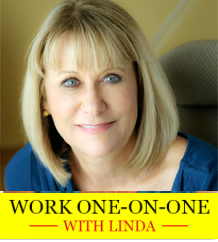How often do we return to a place where we once lived, or loved, during a different period in our lives, only to find it changed? Last week, Brad and I went back to San Francisco’s Bay Area, the wealthy suburbs just south of the city. He and I had lived and worked there for thirty-eight and twenty-eight years respectively, and raised our families in the warmth of its welcome.
Having relocated to Annapolis, we take a trip back “home,” as we affectionately call it, a few times a year, but this time our visit was a revelation. In the two years since we left, much has changed, and very quickly–in not only the skyline but the population, as well. We had read that in the city the homeless, (mostly the mentally ill and the addicted), live in utter poverty on the sidewalks, often shooting up and using the pavement as toilets in full view of passersby. We had read that over half the homeless in the U.S. live in California itself, with San Francisco coming in at ten times the national level. It was hard to believe all this until Brad, out and about for the day while I visited friends, witnessed such squalor at the foot of one luxurious high rise after another–a strange dystopian vision.
We knew that the homelessness crisis could not be easily solved, as the Bay Area has an acute housing shortage: the average cost of a rental is close to $4,000 a month, while a starter home of 1000 square feet runs well over a million. This beautiful area has become too expensive for anyone except for the thousands of remarkably well-heeled Facebook and Google youth, or those who are tech industry titans. The city and its suburbs sport more billionaires per capita than anywhere else on the planet. Where has the working class gone? To lower-income suburbs far away, those that require long, long commutes. As a mere annoyance amidst all this, the traffic now rivals that of L.A.
We were often asked on this visit whether we regretted the move to Maryland. Though we did not say so, this time we would have answered very differently than we would have only last year. It is true that we miss the superior weather and the spectacular beauty of the area–and, most importantly, those we had to leave behind. But the city and its surrounding suburbs, the areas we so loved, have changed so radically that our new environs are now something of a relief. What happened to the place where Tony Bennett left his heart? We mourn the area we loved and hope that there will be a solution for these crises it faces.
In contrast to all this, our time there did show us the one thing that has not changed: our bond with friends. These connections remain air-tight; whenever we visit we find that in order to see everyone we must cram in back-to-back breakfasts, lunches, coffees, and dinners. A close friend offers us her generous hospitality and this relationship in particular is strengthened every time we visit. A friendship can remain intense and precious forever, if you make the effort to keep it alive.

We will continue to visit the Bay Area and hope that its problems change soon. Perhaps the old hospitals we used to have will once again be funded to take care of the mentally ill and the drug addicted now living on the sidewalks. Perhaps some kind of resolution will overcome the political squabbling. Perhaps we will all learn to be better friends to one another on a bigger scale, and a wealthy hand will grasp a poor one. I don’t live in San Francisco any more, so I am in no position to provide answers, but I do know this: it’s no longer acceptable to step over the needy on your doorstep.
Yours,

Have a comment or feedback? Talk to Linda!

